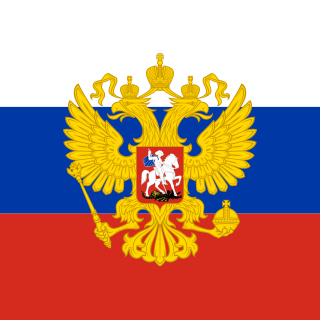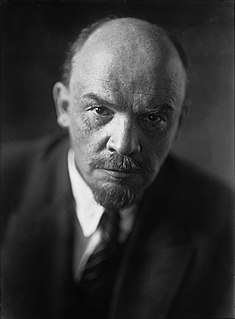Related Research Articles

Grigori Yefimovich Rasputin was a Russian mystic and self-proclaimed holy man who befriended the family of Nicholas II, the last emperor of Russia, and gained considerable influence in late Imperial Russia.

The International Space Station (ISS) is a modular space station in low Earth orbit. It is a multinational collaborative project involving five participating space agencies: NASA, Roscosmos (Russia), JAXA (Japan), ESA (Europe), and CSA (Canada). The ownership and use of the space station is established by intergovernmental treaties and agreements. The station serves as a microgravity and space environment research laboratory in which scientific research is conducted in astrobiology, astronomy, meteorology, physics, and other fields. The ISS is suited for testing the spacecraft systems and equipment required for possible future long-duration missions to the Moon and Mars.

Latvia, officially known as the Republic of Latvia, is a country in the Baltic region of Northern Europe. It is one of the Baltic states; and is bordered by Estonia to the north, Lithuania to the south, Russia to the east, Belarus to the southeast, and shares a maritime border with Sweden to the west. Latvia covers an area of 64,589 km2 (24,938 sq mi), with a population of 1.9 million. The country has a temperate seasonal climate. Its capital and largest city is Riga. Latvians belong to the ethno-linguistic group of the Balts; and speak Latvian, one of the only two surviving Baltic languages. Russians are the most prominent minority in the country, at almost a quarter of the population.

Moscow is the capital and largest city of Russia. The city stands on the Moskva River in Central Russia, with a population estimated at 12.4 million residents within the city limits, over 17 million residents in the urban area, and over 20 million residents in the metropolitan area. The city covers an area of 2,511 square kilometres (970 sq mi), while the urban area covers 5,891 square kilometres (2,275 sq mi), and the metropolitan area covers over 26,000 square kilometres (10,000 sq mi). Moscow is among the world's largest cities; being the most populous city entirely in Europe, the largest urban and metropolitan area in Europe, and the largest city by land area on the European continent.

The North Pole, also known as the Geographic North Pole or Terrestrial North Pole, is the point in the Northern Hemisphere where the Earth's axis of rotation meets its surface. It is called the True North Pole to distinguish from the Magnetic North Pole.

Russia, or the Russian Federation, is a country spanning Eastern Europe and Northern Asia. It is the largest country in the world, covering over 17,125,191 square kilometres (6,612,073 sq mi), and encompassing one-eighth of Earth's inhabitable landmass. Russia extends across eleven time zones, and has the most borders of any country in the world, with sixteen sovereign nations. It has a population of 146.2 million; and is the most populous country in Europe, and the ninth-most populous country in the world. Moscow, the capital, is the largest city in Europe; while Saint Petersburg is the second-largest city and cultural centre. Russians are the largest Slavic and European nation; they speak Russian, the most spoken Slavic language, and the most spoken native language in Europe.

Russian is an East Slavic language native to Russia in Eastern Europe. It is a part of the Indo-European language family, and is one of four living East Slavic languages, and also part of the larger Balto-Slavic branch. Russian is an official language in Russia, Belarus, Kazakhstan, and Kyrgyzstan, and is used widely as a lingua franca throughout Ukraine, the Caucasus, Central Asia, and to some extent in the Baltic states. It was the de facto language of the Soviet Union until its dissolution, and continues to be used in public life with varying proficiency in all of the post-Soviet states.

Ukraine is a country in Eastern Europe. It is the second-largest country by area in Europe after Russia, which it borders to the east and north-east. Ukraine also shares borders with Belarus to the north; Poland, Slovakia, and Hungary to the west; Romania and Moldova to the south; and has a coastline along the Sea of Azov and the Black Sea. It spans an area of 603,628 km2 (233,062 sq mi), with a population of 41.3 million, and is the eighth-most populous country in Europe. The nation's capital and largest city is Kyiv.

Vladimir Vladimirovich Putin is a Russian politician and former intelligence officer who is serving as the current president of Russia. He has been serving in this position since 2012, and he previously held this office from 1999 until 2008. He was also the prime minister from 1999 to 2000, and again from 2008 to 2012. Putin is the second-longest serving European president in modern history.

Ukrainian, historically also called Ruthenian, is an East Slavic language of the Indo-European language family, and is one of Slavic languages, which are part of a larger Balto-Slavic branch. It is the native language of Ukrainians and the official state language of Ukraine. Written Ukrainian uses a variant of the Cyrillic script.

Georgia is a country located at the intersection of Eastern Europe and Western Asia. It is a part of the Caucasus region, bounded to the west by the Black Sea, to the north and east by Russia, to the south by Turkey and Armenia, and to the southeast by Azerbaijan. It covers 69,700 square kilometres (26,911 sq mi), and has a population of 3.7 million excluding the occupied territories. Georgia is a representative democracy governed as a unitary parliamentary republic. Tbilisi is the capital and largest city, home to roughly a quarter of the population.

The President of the Russian Federation, is the head of state of the Russian Federation, as well as the commander-in-chief of the Russian Armed Forces. It is the highest office in Russia.

Transnistria, officially the Pridnestrovian Moldavian Republic (PMR), is an unrecognised breakaway state located in the narrow strip of land between the river Dniester and the Moldovan–Ukrainian border that is internationally recognised as part of Moldova. Its capital and largest city is Tiraspol. Transnistria has been recognised by only three other unrecognised or partially recognised breakaway states: Abkhazia, Artsakh, and South Ossetia. Transnistria is designated by the Republic of Moldova as the Administrative-Territorial Units of the Left Bank of the Dniester, or Stînga Nistrului.
Russian organized crime or Russian mafia, otherwise known as Bratva, is a collective of various organized crime elements originating in the former Soviet Union. The acronym OPG is Organized Criminal Group, used to refer to any of the Russian mafia groups, sometimes modified with a specific name, e.g. Orekhovskaya OPG. Sometimes the initialism is translated and OCG is used.

Dmitry Anatolyevich Medvedev is a Russian politician serving as Deputy Chairman of the Security Council of Russia since 2020. Medvedev served as president from 2008 to 2012 and as prime minister from 2012 to 2020.

RT is a Russian state-controlled international television network funded by the federal tax budget of the Russian government. It operates pay television or free-to-air channels directed to audiences outside of Russia, as well as providing Internet content in English, Spanish, French, German, Arabic, and Russian.

Vladimir Ilyich Ulyanov, better known by his alias Lenin, was a Russian revolutionary, politician, and political theorist. He served as the first and founding head of government of Soviet Russia from 1917 to 1924 and of the Soviet Union from 1922 to 1924. Under his administration, Russia, and later the Soviet Union, became a one-party socialist state governed by the Soviet Communist Party. A Marxist, he developed a variant of communist ideology known as Leninism.

Saint Petersburg, formerly known as Petrograd (1914–1924) and later Leningrad (1924–1991), is the second-largest city in Russia. It is situated on the Neva River, at the head of the Gulf of Finland on the Baltic Sea, with a population of roughly 5.4 million residents. Saint Petersburg is the fourth-most populous city in Europe, the most populous city on the Baltic Sea, as well as the world's northernmost city with over 1 million residents. As Russia's Imperial capital, and a historically strategic port, it is governed as a federal city.

Alexei Anatolievich Navalny is a Russian opposition leader, lawyer, and anti-corruption activist. He came to international prominence by organizing anti-government demonstrations and running for office to advocate reforms against corruption in Russia, and against President Vladimir Putin and his government. Putin avoids directly referring to Navalny by name. Navalny was a Russian Opposition Coordination Council member. He is the leader of the Russia of the Future party and the founder of the Anti-Corruption Foundation (FBK).

The Syrian civil war is an ongoing multi-sided civil war, fought in Syria, between the Syrian Arab Republic led by Syrian president Bashar al-Assad and various domestic and foreign forces that oppose both the Syrian government and each other, in varying combinations.
References
- ↑ "Review of Ethmiidae (Lepidoptera) of the Asian part of Russia and neighbouring territories". Archived from the original on 2012-06-30. Retrieved 2012-01-20.